Yemen's Houthis Target MSC Ship In Gulf Of Aden
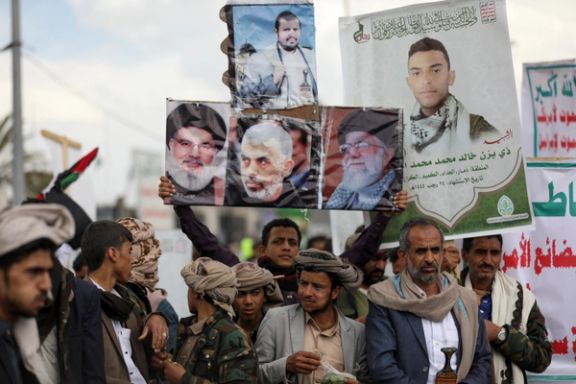
Yemen's Houthis said they targeted the MSC Darwin ship in the Gulf of Aden on Thursday, as the Iran-aligned group resumed attacks on commercial ships in the Red Sea region.

Yemen's Houthis said they targeted the MSC Darwin ship in the Gulf of Aden on Thursday, as the Iran-aligned group resumed attacks on commercial ships in the Red Sea region.
The Houthis also fired a number of ballistic and winged missiles at several targets in Israel's port city of Eilat, the group's military spokesman Yahya Sarea said in a televised speech on Thursday.
The Liberian-flagged MSC Darwin VI ship was in the area of the attack, travelling between the ports of Aden and Djibouti, according to Refinitiv data.
Swiss-based MSC, which operates the world's largest container line by fleet capacity, did not immediately respond to a request for comment.
Reuters was not immediately able to confirm if that vessel was the MSC Darwin mentioned by the Houthis.
The Houthis since November have attacked more than four dozen ships, taking possession of one and sinking another. The barrage of assaults had eased in recent weeks amid U.S.-led airstrikes and a sharp drop in commercial vessel voyages through the Red Sea and Gulf of Aden.
Earlier on Thursday, a ship's captain reported hearing a loud bang and seeing a splash and smoke coming from the sea on Thursday around 15 nautical miles southwest of the Yemeni port of Aden, Britain's maritime agency said.
The UK Maritime Trade Operations (UKMTO) added that the crew and vessel were safe and military authorities were supporting it.
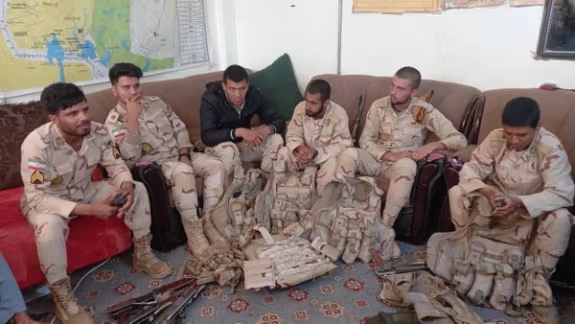
The Taliban has arrested five Iranian border guards in Afghan territory and handed them over to the its intelligence department.
Taliban and Iranian officials have not yet commented about the guards, who claim they had entered the Afghan territory "by mistake." They were arrested in Farah province in southwestern Afghanistan. Thursday night, Iranian state media reported that they were freed.
The Iranian government and Taliban have been involved in several border disputes over the past months. Clashes at the border over water rights in May claimed the lives of at least two Iranians and one Taliban soldier.
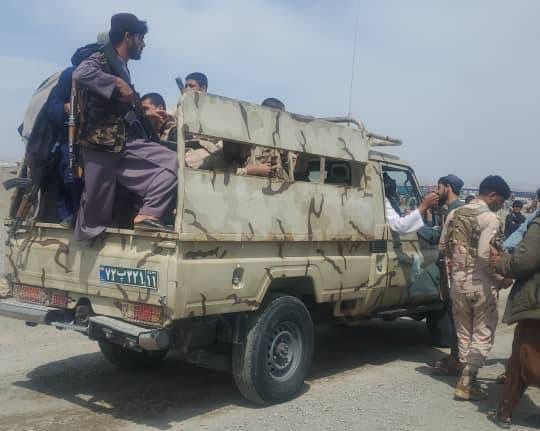
The situation has recently been tense in Iran’s eastern borders as the insurgent Sunni Baluch group known as Jaish al-Adl (Army of Justice) intensified its operations against Iranian security forces. The group advocates for enhanced rights and improved living conditions for the Baluch ethnic minority.
Earlier in the month, six law enforcement officers were killed by Jaish al-Adl militants during an ambush on police vehicles along the Sib and Suran county route in Sistan-Baluchistan province. The week before, the group also launched simultaneous attacks against military posts in Chabahar and Rask, killing 16 police forces; the clashes also claimed the lives of 18 Jaish al-Adl militants.
Jaish al-Adl has also been a source of tension between Iran and its nuclear neighbor, Pakistan, for years. In January, the IRGC attacked positions in Pakistan in what it called an attempt to target terrorists. Pakistan retaliated by attacking locations in southeastern Iran.

Massive Evangelical-funded billboards have been installed in Tel Aviv and Jerusalem, predicting the collapse of the Iranian government by October 28, 2028.
Towering the Ayalon Highway in Tel Aviv, the billboard demonstrates the phrase “The end of the Ayatollah’s regime in Iran” in Hebrew, English and Persian. Underneath the inscriptions is an hourglass which symbolizes the downfall of the Iranian government in the near future.
The billboard has been erected by “Jerusalem Prayer Team,” a US organization whose aims are to “guard, defend, and protect the Jewish people” and raise funds to “meet humanitarian needs of the Jewish people in Israel,” according to its website.
“Hundreds of millions of Evangelicals have Israel’s back. Israel, you’re not alone,” read the statement written at the bottom of the billboard.
Likewise, “Jerusalem Prayer Team” published a similar announcement in Israel Hayom daily on Monday, warning that “all who have lifted their hands against Israel are in the dust pan of history.”
Erecting a billboard promising the downfall of the Islamic Republic resembles similar state-sponsored moves in Iran over the past years. In 2015, Ali Khamenei said Israel must be destroyed in 25 years and the government set up a countdown clock in Tehran and a few other cities.
Tensions between Iran and Israel have risen sharply over the past weeks. On April 1, Israel launched a precision missile strike on Iran's consulate building in Damascus, including Mohammad Reza Zahedi, the top commander of the IRGC Quds Force. In retaliation, Iran launched on April 13 its first ever direct offensive against Israeli territory with more than 350 drones and cruise and ballistic missiles.
Early Friday, Israel reportedly targeted Esfahan's 8th Shekari Air Base in reprisal for Iran’s operation. Though satellite images and reports indicate that a major defense system in the airbase was damaged, Iranian officials and state media have unanimously played down the operation.
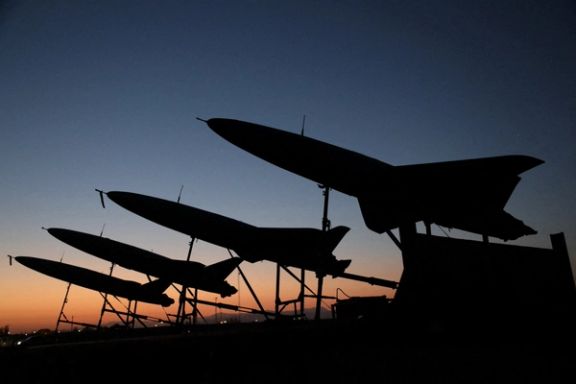
Washington and London on Thursday issued further sanctions on Iran, targeting Iranian drones, including their use by Russia in the war in Ukraine.
The US Treasury Department in a statement said the action, taken in coordination with the United Kingdom and Canada, targets over one dozen entities, individuals and vessels it accused of playing a key role in facilitating and financing the clandestine sale of Iranian unmanned aerial vehicles to Iran's Ministry of Defense and Armed Forces Logistics (MODAFL).
MODAFL in turn supports Iran's elite Revolutionary Guards (IRGC) and Russia's war in Ukraine, the Treasury said.
“Iran’s Ministry of Defense continues to destabilize the region and world with its support to Russia’s war in Ukraine, unprecedented attack on Israel, and proliferation of UAVs and other dangerous military hardware to terrorist proxies,” Treasury's Under Secretary for Terrorism and Financial Intelligence, Brian Nelson, said.
Washington also targeted two companies and a vessel involved in the shipment of Iranian commodities, the Treasury said.
“The United States, in close coordination with our British and Canadian partners, will continue to use all means available to combat those who would finance Iran’s destabilizing activities," Nelson said.
British Foreign Secretary David Cameron said in a statement, "The Iranian regime's dangerous attack on Israel risked thousands of civilian casualties and wider escalation in the region.”
"Today the UK and our partners have sent a clear message – we will hold those responsible for Iran's destabilizing behavior to account.
Britain also said it would introduce new bans on the export of drone and missile components to Iran, seeking to limit its military capabilities.
Iran's mission to the United Nations in New York did not immediately respond to a request for comment.

The Treasury said it targeted Sahara Thunder, accusing it of being a main front company that oversees MODAFL's commercial activities in support of the IRGC and Russia's war in Ukraine.
It said the company plays a key role in Iran's design, development, manufacture and sale of thousands of drones, many of them ultimately transferred to Russia for use against Ukraine.
As of 2022, Russian officials were negotiating a deal for Sahara Thunder to deliver and produce thousands of drones per year at a facility in Russia under U.S. sanctions, the Treasury said.
Sahara Thunder's leadership and shipping network, which the Treasury said the company relied on for the sale and shipment of Iranian commodities on behalf of MODAFL to jurisdictions including China, Russia and Venezuela, were also targeted.
An Iran-based company involved in the procurement and development of unmanned aerial vehicles, its leadership and an Iranian cargo airline were also among those hit with sanctions.
The US earlier this month had warned it would impose further sanctions on Iran following its unprecedented attack on Israel.
Washington has since taken measures, including targeting Iran's drone program, steel industry and cyber actors.
Iran this month launched more than 300 drones and missiles against Israel, its first direct attack on the country, in retaliation for a suspected Israeli air strike on its embassy compound in Damascus on April 11 that killed elite military officers.
(Reporting by Reuters)
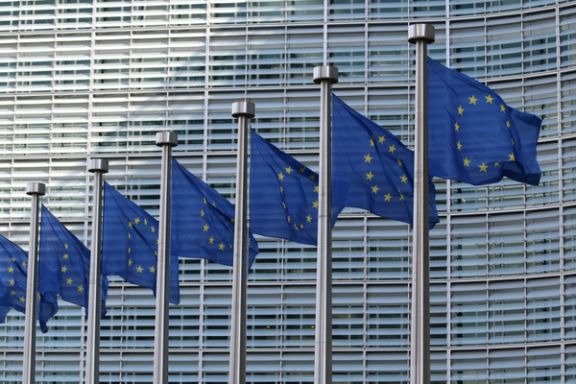
In a resolution adopted Thursday in response to Iran’s recent aerial attack on Israel, the European Parliament urged the EU to hand more sanctions to Tehran and designate the IRGC a terrorist organization.
“The resolution also reiterates Parliament’s long-standing call to include Iran’s Islamic Revolutionary Guard Corps on the EU list of terrorist organisations, stressing that such a decision is long overdue due to malign Iranian activities. It similarly calls on the Council and EU Foreign Policy Chief Josep Borrell to add Hezbollah in its entirety to the same list.,” wrote the European Parliament statement.
Hezbollah in Lebanon is Iran's largest and wealthiest proxy and is currently waging war on Israel's northern front. Since October 7 when Iran-backed Hamas in Gaza invaded Israel, over 3,200 projectiles have been fired into Israeli territory from Lebanon and this week, the Israeli military announced over half the terror group's commanders in south Lebanon have been eliminated.
The latest resolution passed by 357 votes in favor, 20 against and 58 abstentions and comes just days after sanctions were levied against Tehran by the EU for Iran's aerial bombardment of Israel.
The adoption of the latest resolution came a day after heated arguments in the parliament where Borrell was severely taken to task by the representatives for his failure to designate the IRGC as a terrorist organization. Arguing that the bloc has already listed Tehran’s paramilitary force under the “Iran Weapons of Mass Destruction” sanctions’ regime, Borrell said that “listing this organization as a ‘terrorist organization’ would have no practical effect.”
In response to Borrell’s argument that the legal grounds for the listing have not been met, Charlie Weimers, a Swedish representative, called the EU chief “a liar.”
“That is nonsense. Here, I have the council's secret legal opinion. Nowhere in this document does it say that it has to be an authority in the EU… You know that. You knew the truth. You shamelessly lied to protect the IRGC. We won't miss you, Mr. Borrell, but I'm sure the mullahs will,” Weimers stated.
During the session, the European Parliament strongly condemned Iran’s unprecedented attack on Israeli territory, vowing full support for the security of Israel and its citizens against the threats of the Iranian government and its proxies.
On April 13, Iran launched its first ever direct offensive against Israeli territory with more than 350 drones and cruise and ballistic missiles, 99% of which were intercepted by Israel and a US-led coalition, according to the Israeli army.
For months after the start of the Gaza war on October 7, the Iranian government avoided direct involvement in the conflict. Until this month, it had used its proxies to target Israeli and American targets in the region, punishing America for supporting Israel's right to defend itself after the most deadly day for Jews since the Holocaust. Over 1,200 mostly civilians were killed and over 250 taken hostage.
The European Parliament welcomed the EU’s recent decision to impose further sanctions against Tehran, especially those targeting Iran’s production and supply of drones to Russia and the wider Middle East. The resolution demanded that the EU’s new regime of sanctions be urgently enforced.
Since mid-2022, Iran has supplied a substantial number of kamikaze Unmanned Aerial Vehicles (UAVs) to Russia, which have been extensively deployed to target civilian infrastructure and cities. The drones have also been incorporated into large-scale missile attacks, overwhelming Ukrainian air defenses.
Slamming the Iranian regime’s notorious “hostage diplomacy,” the parliament demanded that the EU “launch a strategy to counter it with a dedicated task force to better assist detainees’ families and effectively prevent further hostage-taking,” according to its website.
Critics accuse the Islamic Republic of Iran of leveraging the detention and trial of Western or dual-national citizens as a means to advance its political agendas and to provoke tensions with Western governments.
Tehran denies any policy of hostage taking and insists all foreigners are tried legally. However, it has frequently shown readiness for prisoner exchanges and receiving monetary payments and participated in swaps in the past. Last year, the United States unfroze $6 billion of Iran's blocked funds in exchange for the release of five hostages.
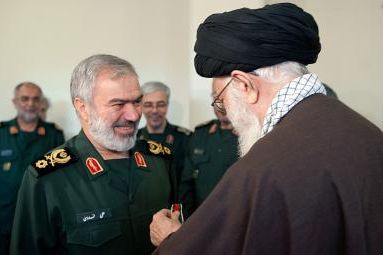
The IRGC looks set to enter Iran's auto industry and is awaiting approval from the country's supreme leader as the state security forces expand its economic dominance in Iran.
Ali Fadavi, the deputy commander of the IRGC, made the announcement Thursday, set to anger many as the government's web of corruption continues to spread across the country's ailing economy. The IRGC is inextricably linked to fields unrelated to its remit, the country's de facto ruling body.
The IRGC’s engagement in economic activities in Iran is not unprecedented. In recent years, the government has started giving oil to the IRGC as a way to boost its budgets.
The notorious military organization involved in the brutal crackdowns on protesters in recent years, including killing over 500 in the wake of the 2022 uprising, has also been involved in trading some of the most important food items, including rice, sugar and tea. It has also been provided with exclusive access to several Iranian ports in order to carry out its undercover projects.
Iran’s auto industry is almost entirely dominated by the government which, following Khamenei’s orders, has imposed exorbitant taxes on the importation of quality foreign-made cars under the pretext of supporting domestic production. The controversial policy has made it impossible for the average pocket in Iran to buy foreign-made mid-priced cars.
There are about a dozen state-and quasi-state-owned automakers in Iran, of which two – Iran Khodro and Saipa - account for 94% of the total domestic production, with nearly 1,500,000 units of light and heavy vehicles produced annually, mostly sub-standard and older foreign models.
According to Farhad Ehteshamzad, the head of Iran Auto Importers Association, the country’s state-owned carmakers are incurring daily losses of $3.7 million, totaling over one billion dollars annually. Meanwhile, Umud Shokri, an energy geopolitics analyst, attributed the heavy losses of Iran’s carmakers to sanctions, technological gaps and mismanagement.